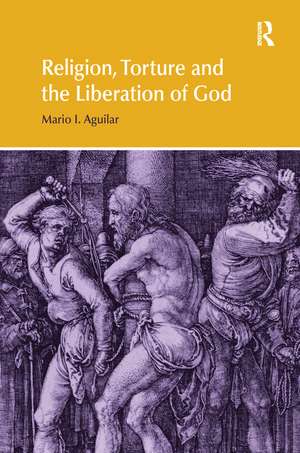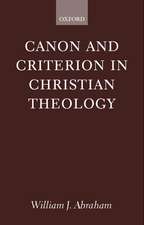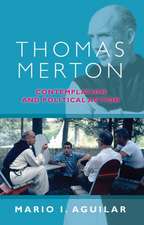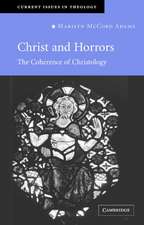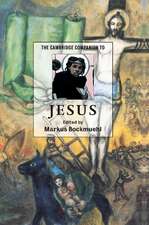Religion, Torture and the Liberation of God: Religion and Violence
Autor Mario I. Aguilaren Limba Engleză Paperback – 30 iun 2021
| Toate formatele și edițiile | Preț | Express |
|---|---|---|
| Paperback (1) | 377.91 lei 6-8 săpt. | |
| Taylor & Francis – 30 iun 2021 | 377.91 lei 6-8 săpt. | |
| Hardback (1) | 994.74 lei 6-8 săpt. | |
| Taylor & Francis – 4 mai 2015 | 994.74 lei 6-8 săpt. |
Preț: 377.91 lei
Nou
Puncte Express: 567
Preț estimativ în valută:
72.32€ • 75.85$ • 60.20£
72.32€ • 75.85$ • 60.20£
Carte tipărită la comandă
Livrare economică 01-15 aprilie
Preluare comenzi: 021 569.72.76
Specificații
ISBN-13: 9781138053311
ISBN-10: 1138053317
Pagini: 116
Dimensiuni: 152 x 229 x 10 mm
Greutate: 0.18 kg
Ediția:1
Editura: Taylor & Francis
Colecția Routledge
Seria Religion and Violence
Locul publicării:Oxford, United Kingdom
ISBN-10: 1138053317
Pagini: 116
Dimensiuni: 152 x 229 x 10 mm
Greutate: 0.18 kg
Ediția:1
Editura: Taylor & Francis
Colecția Routledge
Seria Religion and Violence
Locul publicării:Oxford, United Kingdom
Public țintă
Postgraduate and UndergraduateCuprins
Introduction: The Theologizing of Indecent Torturing 1. The Act of Torture and the Praxis of Theology 2. Torture and Beatitudes in Chile 3. Theological Reflections on Dungeons and Caves 4. A Tortured God that Liberates 5. The Hermeneutics of Torture and G.C. Spivak
Descriere
If God can be used by the powerful to justify violence in the name of order, he can also be used by the weak to illuminate the position of the victims of political conflict. Religion, Torture and the Liberation of God explores the theological possibilities of a God who is a prisoner and a victim of torture. The book relocates God to the horrors of the military abuse of human rights in Chile and the systematic rape of women in the Democratic Republic of Congo. Aguilar argues that this theological exercise offers us new ways of understanding the abuse of power, whether it be the clerical abuse of children, violence against women, or homophobia. This examination of torture and rape becomes, through a theology of praxis and compliance, an examination of solidarity, love and affection. The book concludes with an exploration of the possibilities of a tortured God who liberates.
